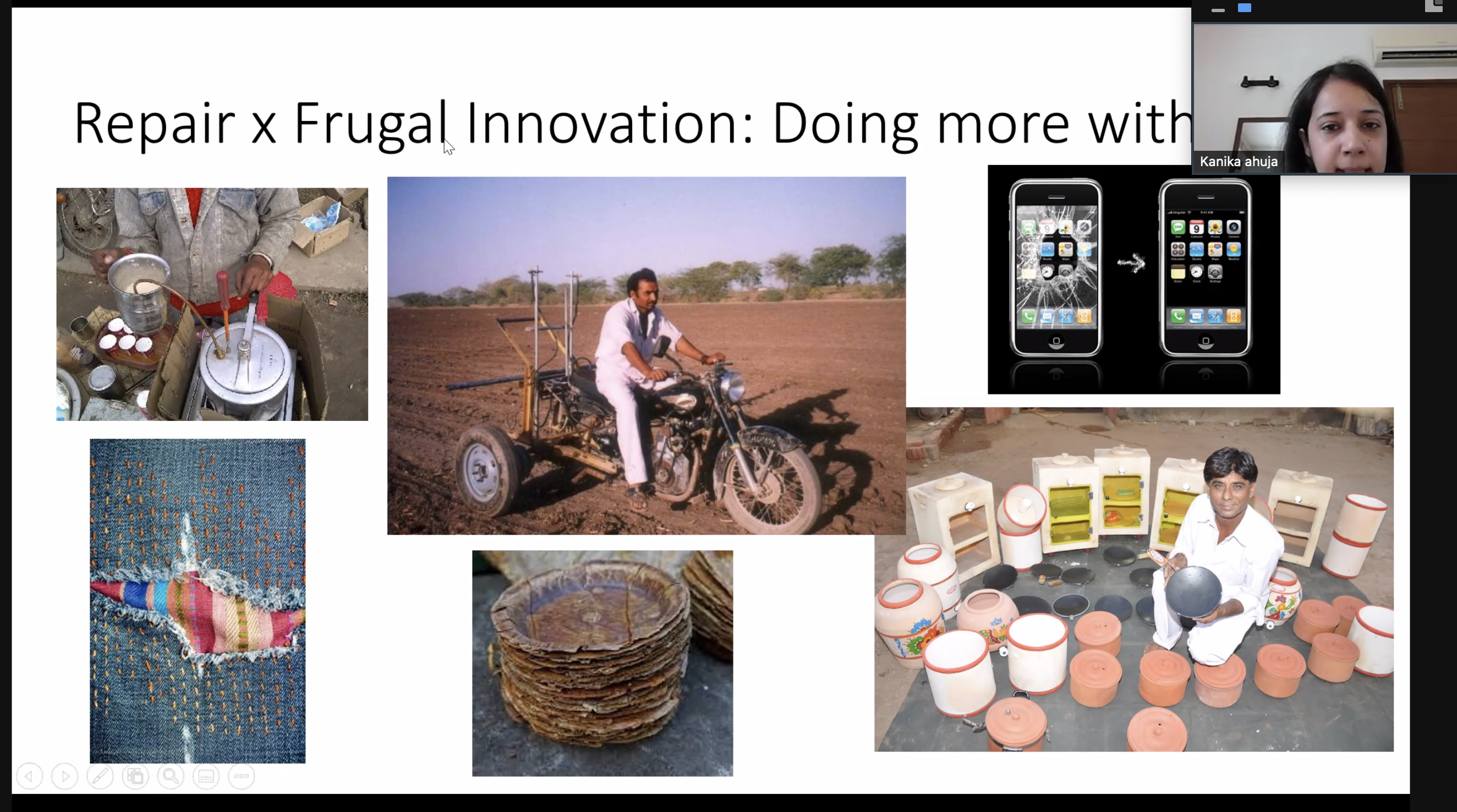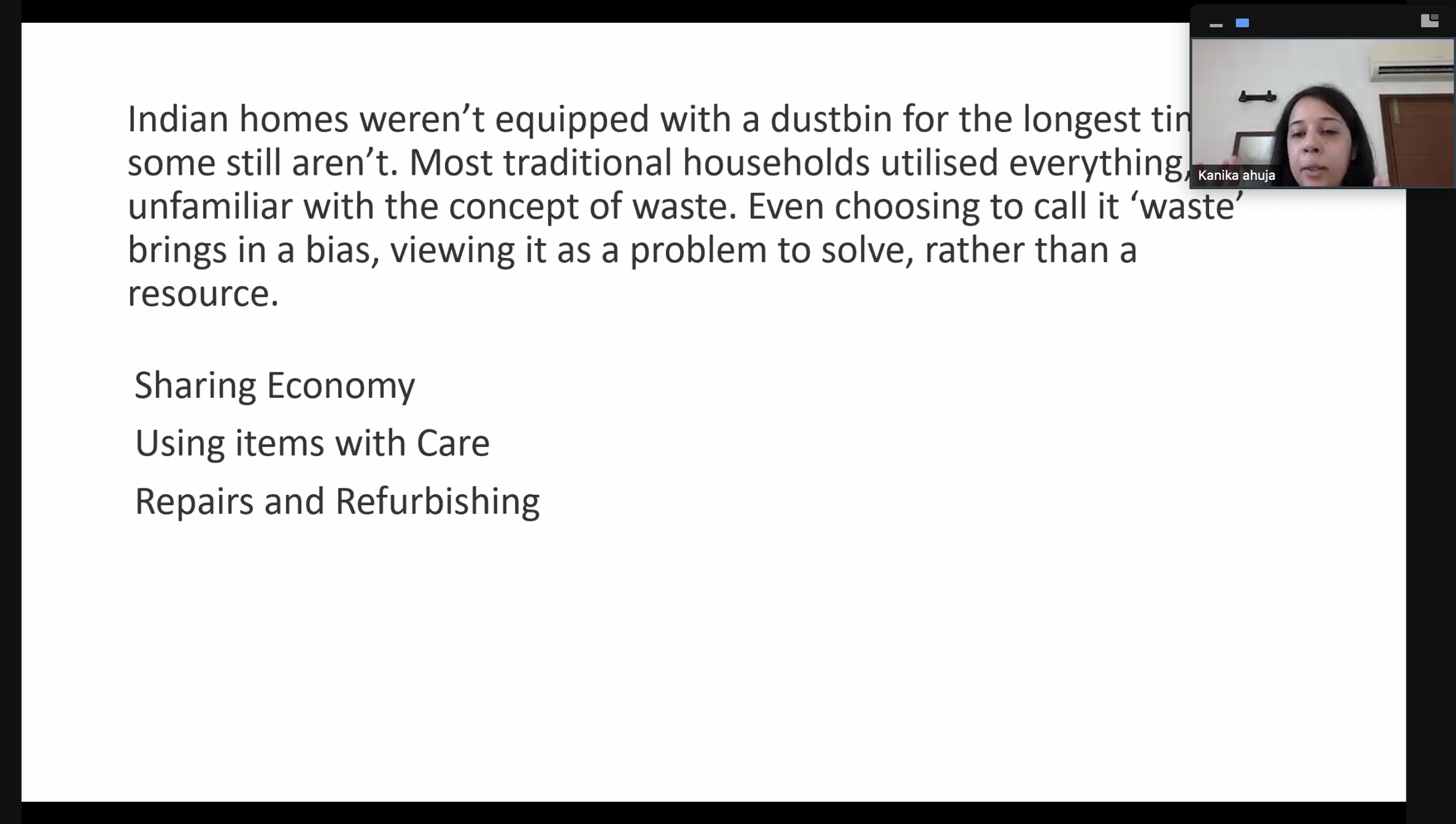The second part of a two-part workshop is open to students across India. The workshop focuses on reconsidering, fading cultures of repair in New Delhi and India by raising awareness and discussing with students, what values lie behind the act of repairing. Emphasises will be placed on understanding the importance of the care and repair of everyday objects, as well as different perspectives of repair and what it means. The workshop also looks to exploring how a “Right to Repair” campaign could be established in India.
Facilitators
Kanika Ahuja armed with an engineering and MBA degree, Kanika pursued her passion in the development field, joining Conserve India, a social enterprise dedicated to sustainability in 2016. She is now the Executive Director at Conserve and the CEO of a sustainable fashion brand, LIFAFFA. She has built a proprietary process to convert single-use plastics to a leather-like fabric and her organization uses this fabric to make fashion products which are then sold in Western markets. She empowers waste pickers and artisans and ensures a job of dignity for them. She is a certified trainer for Livelihoods creation by UNHCR and ILO, a Mentor for Atal Tinkering Labs, NITI Aayog, Government of India and a Fair Trade Ambassador by the World Fair Trade Organization.
Satish Sinha (Moderator) is the Associate Director of Toxics Links, a leading environmental group working on issues of waste and chemicals and a veteran from India Air Force. For over two decades he has been an active campaigner and advocate for sustainable development. Under Satish’s leadership, Toxics Link have made a significant contribution towards shaping the current Municipal and e-Waste rules for India, with his work impacting extensively on changing the landscape of mercury management in India and the region. Satish holds a visiting faculty position at and is a prominent member on discourses relating to circular economy and the Right to Repair in India.
Registration Details
Open to students only.
Agenda
11:30 AM – 11:45 AM: Welcome, Satish Sinha, Toxics Links
11:45 AM – 12:15 PM: : Kanika Ahuja, Conserve India
12:15 PM – 1:00 PM: Repair Activity, Kanika Ahuja, Conserve India
1:00- 1:15 : Open discussion
In advance of the workshop please bring three photos images of repaired textiles with you. This can be a mix of a professional, DIY/self-repair or a failed repair objects or textiles.
What Happened
The workshop opened with Satish, welcoming everyone.
Satish followed up by providing an overview of the TALES OF CARE AND REPAIR project and its importance in the context of India. This was linked with the presence of informal and formal repair practitioners in India and their ecosystem. Satish then introduced and welcomed the workshop expert Ms Kanika Ahuja.
Kanika, who gave a brief introduction to her project and how they are reusing plastics and turning them into useful products. Kanika then explained the basic concepts of repair and how in India the concept of Jugaad (makeshift repair) is very well known and practised. Different terms like repair, refurbishment was explained to the audience. Then as a group activity, Kanika divided the participants into groups of 4-5 members each. The groups were then presented with a problem statement to brainstorm. The problem statements were focused on.
- How can repair be encouraged in India?
- How can we revive the culture of repair back in India
The workshop was concluded by a short Q&A session, which focused on.
- Even after we get our electronics repaired, the product might still fail to work?
- Planned obsolesce by the manufactures.
- When repair practitioners use or reuse cheap spare parts or knock offs while repairing, there is a sense of hesitation by the customers to get things repaired.
- 10 years down the line which sector do you think will be a major problem to handle E-waste or Plastic?


